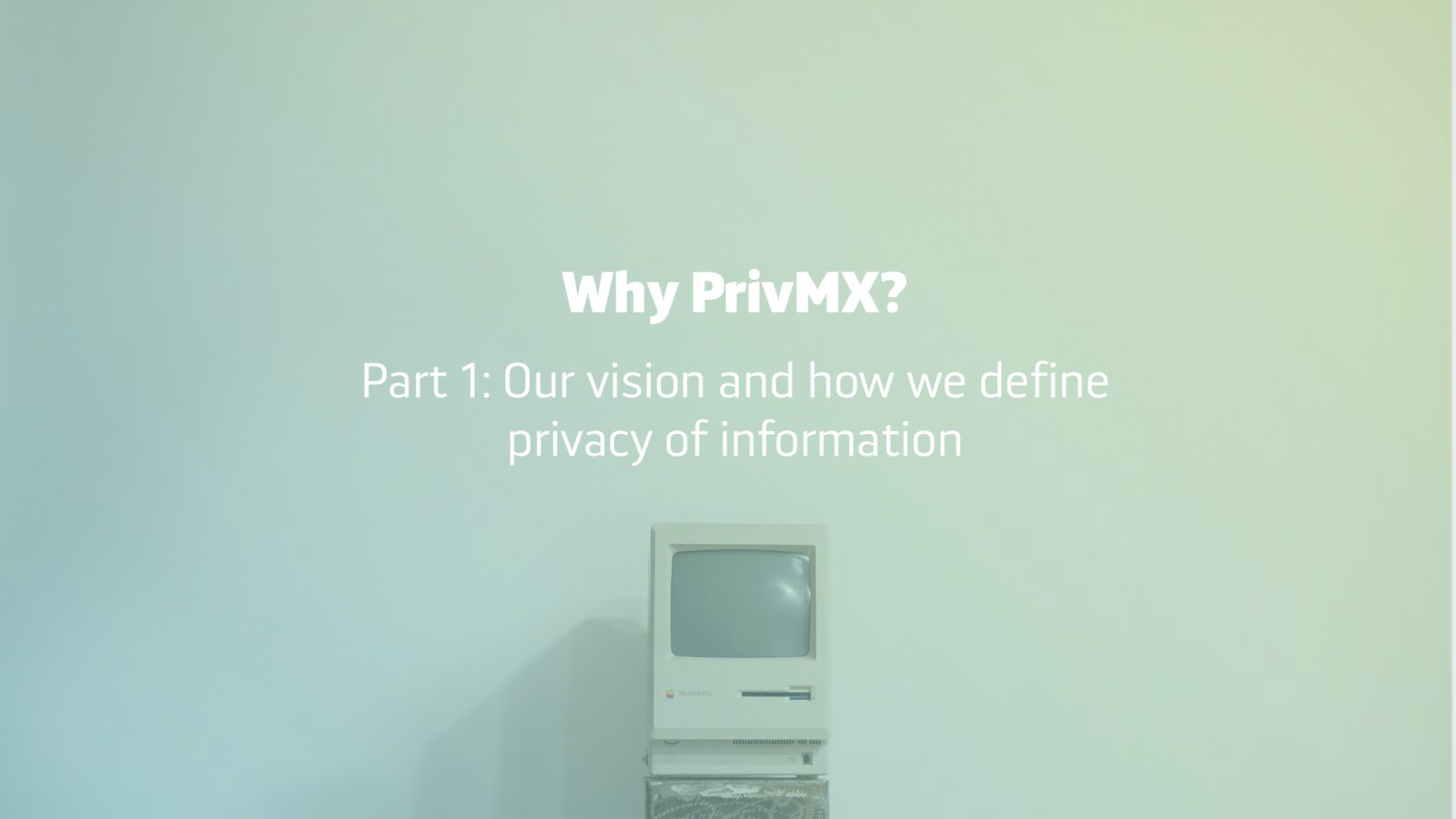
What is our motivation? What’s our take on the past and the present of digital work tools? Why do we keep encouraging you to start fresh with PrivMX? Here’s the first part of our introductory series.

Welcome and thank you for your interest in PrivMX! In the next few blog posts, we’ll describe our project from the fundamentals to how they are being implemented. We may also mention some plans for the future, so stay tuned!
In a nutshell, PrivMX is an ecosystem of tools designed to enable all teams and companies that work in the digital space to work naturally and effectively, maintaining privacy and intellectual property rights.
Information is commonly said to be the most valuable asset in the world. One is right to assume that it is all that counts in the digital world.
Then why aren’t we using it with due care? When we entrust our money to anyone, we’re more than careful to verify who they are and what they plan to do with it. But why do we keep turning a blind eye to this when it’s about our digital assets?
Part of our vision and one of the goals of PrivMX is to fix this: we want teams and companies to regain real control over their information, data and results of their work.
In this post, we concentrate on this particular aspect of PrivMX, leaving the rest for later.
We started programming as teenagers in the 1980s. We were in love with our home micro-computers and knew everything about them. Back then, all games ended up showing a "Game Over" screen, and no matter what a "computer geek" you were, your computer was finally turned off - because real life and work took place outside of it.
With the advent of the Internet in the 90s, life and work began to change gradually and after another 20-30 years we finally became "plugged in" (people, teams, companies) into a global, non-exclusive network of information flow, storage and analysis. Without much exaggeration, we can say that we are now practically completely dependent on the digital world - the Internet is a space where people work, create, think, get to know each other, discuss, plan, break up, play, run their alternative (or actual!) lives - private, social, corporate, etc.
We mention these obvious things for one purpose, as we want to clearly ask the question: what will remain for us, our children and our companies, if we keep giving everything without limits and all the time to this inexhaustible mass of computers equipped with learning algorithms? Who will we become and what will our ventures be, if in the next 20-30 years we will no longer have any thoughts and ideas solely for ourselves?
These questions may at first seem strange or premature, but they are one of the most important issues that humanity must answer at the beginning of the 21st century.
At PrivMX, we believe that if the forces of our civilization are directing us towards the digital world, where we are to live and work, we should, first of all, create effective rules and mechanisms for information privacy.
The right to privacy is one of the fundamental human rights that is of even greater importance in a world where "information is everything". Without privacy, is it possible to think of mental health, healthy interpersonal relationships, healthy market competition, or healthy ownership rules at all?
From our point of view, which is inevitably somewhat technical, the current situation is far from desirable: we live in a digital civilization that more or less deliberately forgets about the privacy of information. The forces shaping our world can agree on rules protecting only certain pieces of information (such as personal data), but it does not seem that similar care will apply to other categories of information that we deposit on the web.
The discussion on this situation is material for a separate article, but our most important conclusion must be heard here: if we want to keep something only to ourselves, then we should not procrastinate. We should all answer a few key questions in depth: how much do you care about your ideas? How valuable are the results of your team's work to you? Do private matters in your company remain private? Are your clients' affairs treated confidentially? And so on ... Notice that all similar questions connect with each other and lead to similar conclusions - Something has to be done about it.
The PrivMX tool ecosystem is our attempt to constructively respond to this situation. In the next post, we will describe the main principle we adopted from the beginning of our software development: Total Privacy-by-Design.
If you don’t want to miss out on our new updates and articles, consider following us on social media. ⬇ Thanks!
 Matt Muszytowski
Matt Muszytowski
 Vergelijkbare blogberichten:
Vergelijkbare blogberichten: